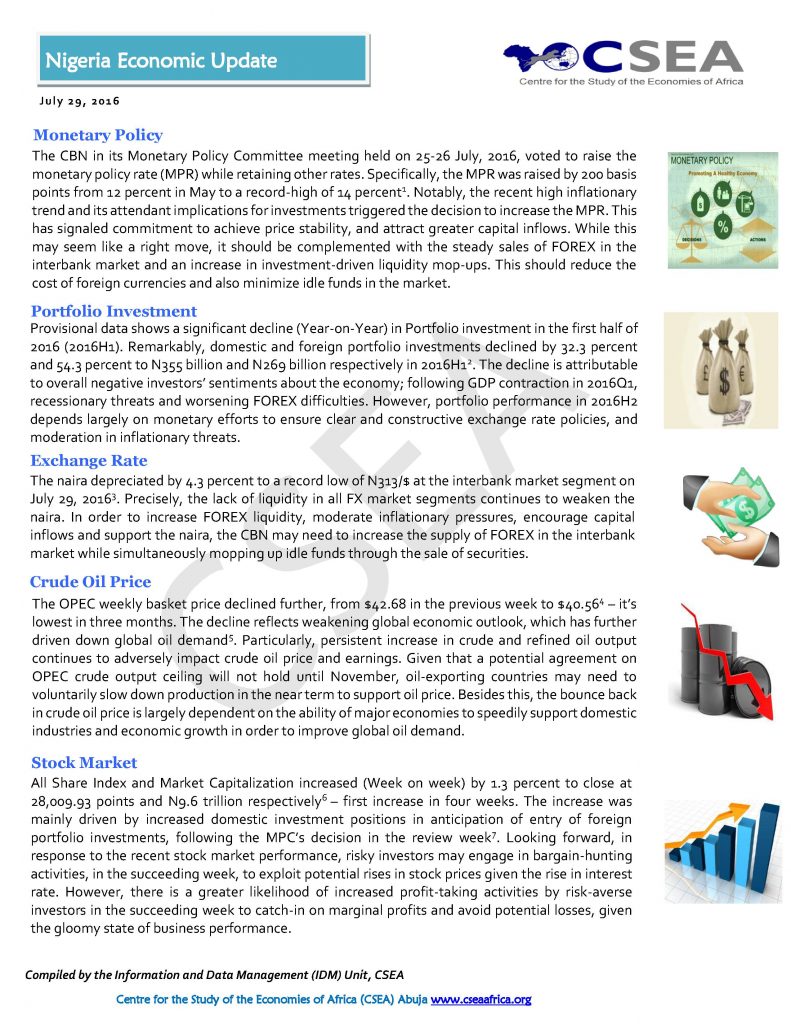Macroeconomic Report & Economic Updates

August 5, 2016
Nigeria Economic Update (Issue 33)
The naira depreciated by 4.3 percent to a
record low of N313/$ at the interbank market segment on July 29, 2016.Precisely, the lack of liquidity in all FX market segments continues to weaken
the naira. In order to increase FOREX liquidity, moderate inflationary
pressures, encourage capital inflows and support the naira, the CBN may need to
increase the supply of FOREX in the interbank market while simultaneously
mopping up idle funds through the sale of securities.
Related
Nigeria Economic Update (Issue 35)
Nigeria's Real Gross Domestic Product (GDP) increased at an annual rate of 0.55 percent in 2017Q21, compared to the -0.91 percent (revised) in 2017Q1 indicating the first quarterly positive growth rate since 2016Q1 and an evidenced exit from five quarters of economic recession. The acceleration in real GDP in 2017Q2 reflects the significant increase in oil sector GDP from -11.64 percent in 2017Q1, to 1.64 percent in 2017Q2 a 13.3 percentage points Quarter-on-Quarter increase. However, Non-oil GDP moderated by 0.3 percentage points to 0.45 percent. Despite the recent favorable economic performance, growth prospect remains fragile.
